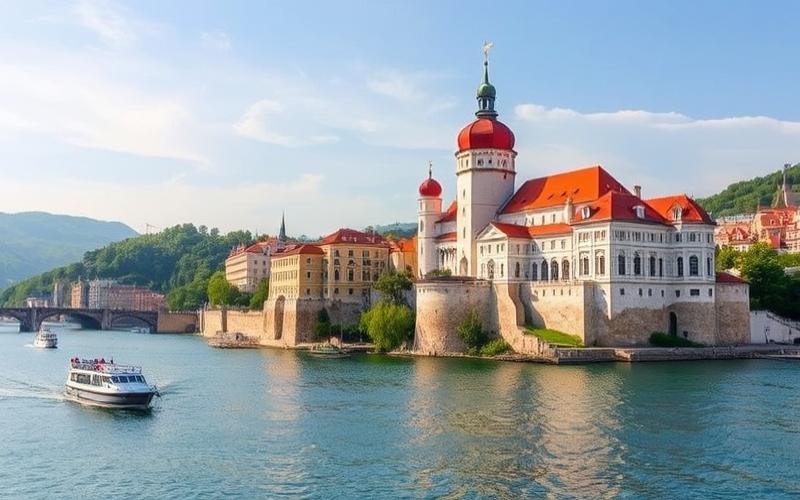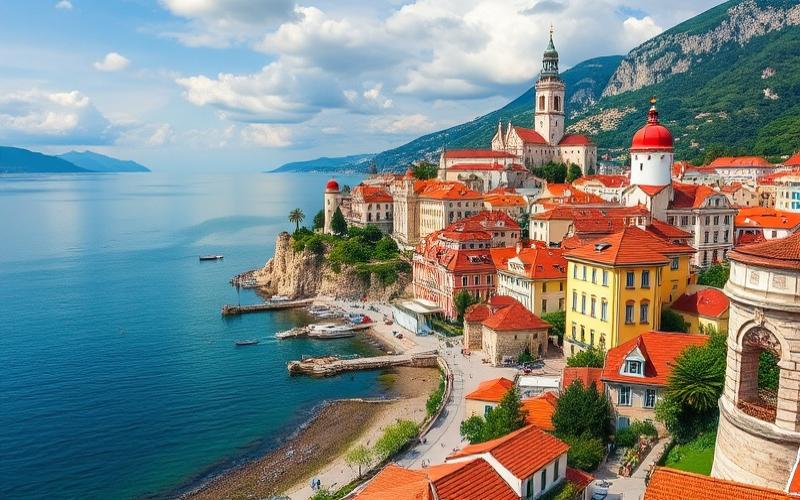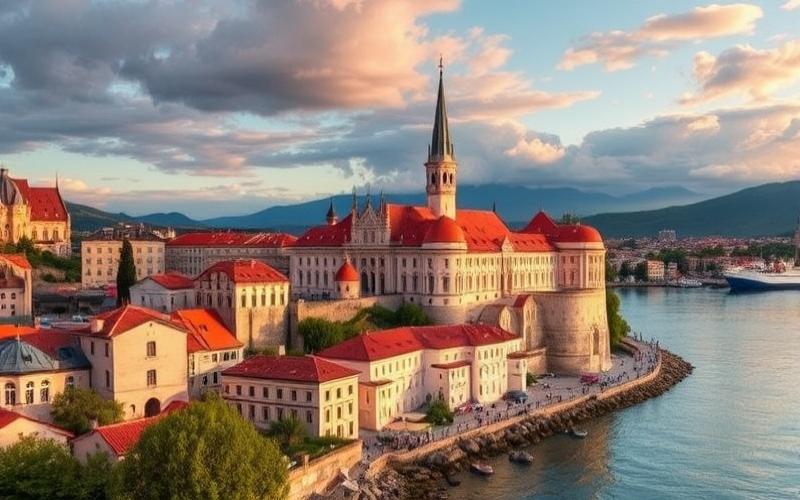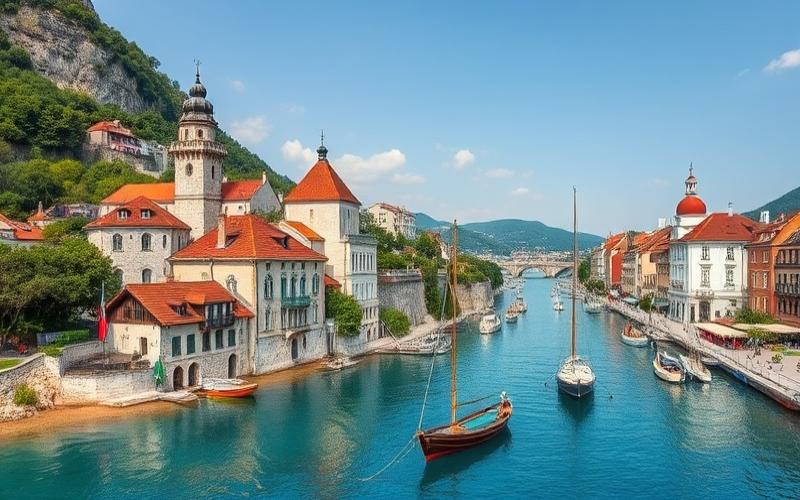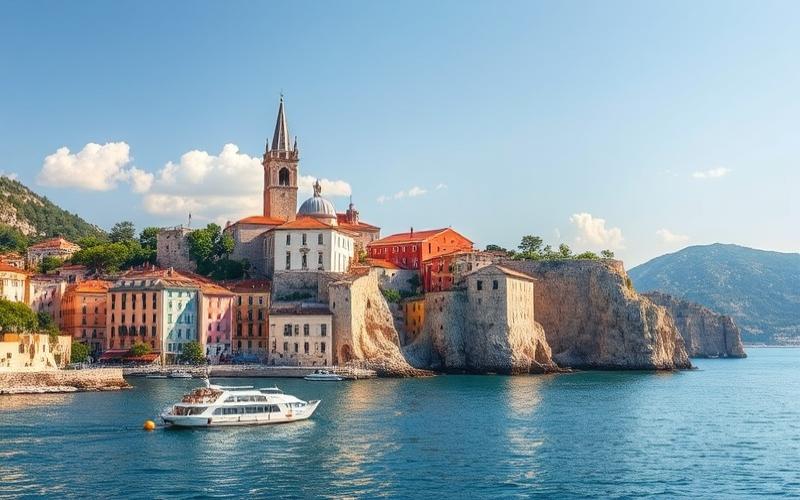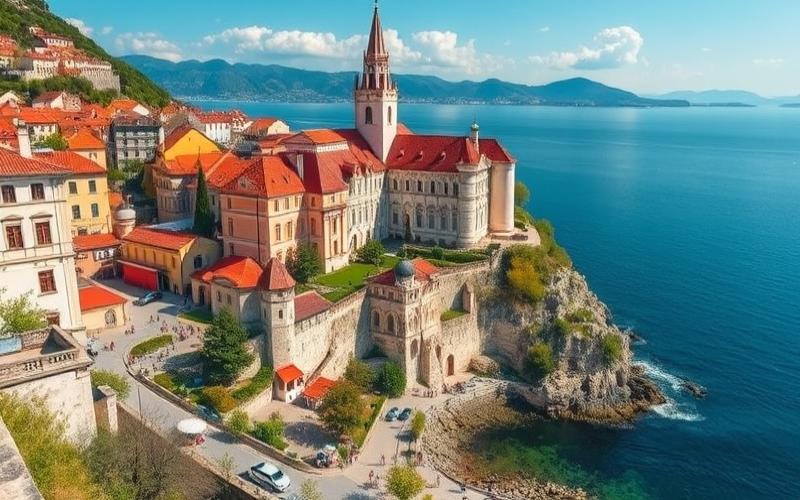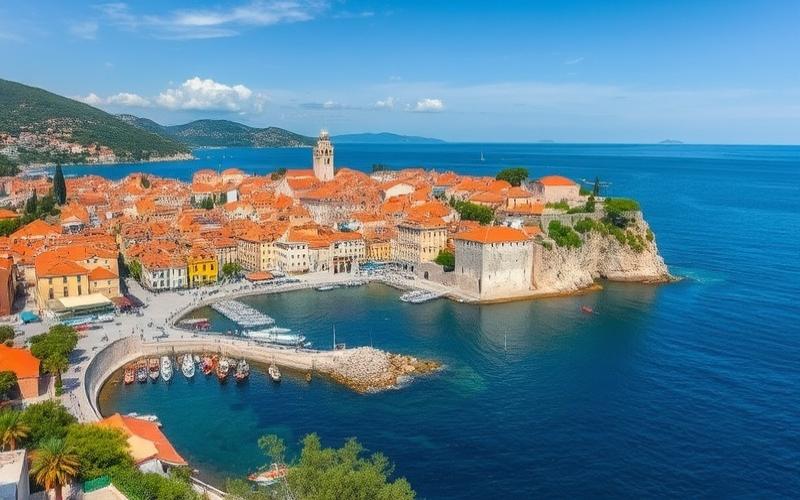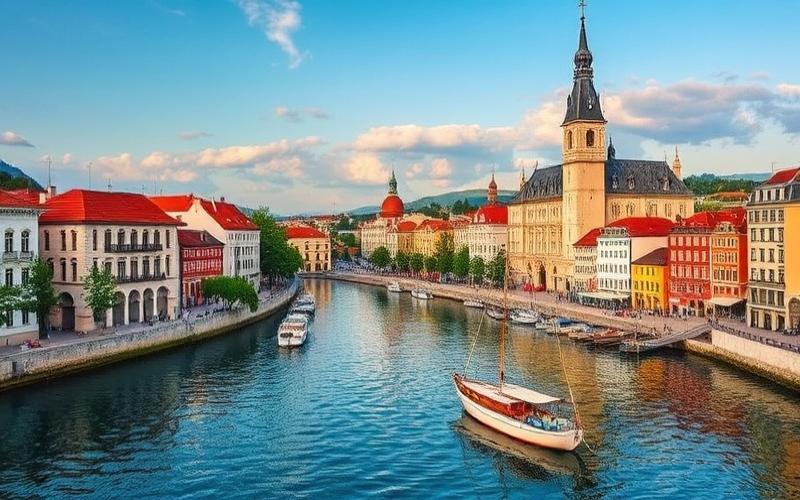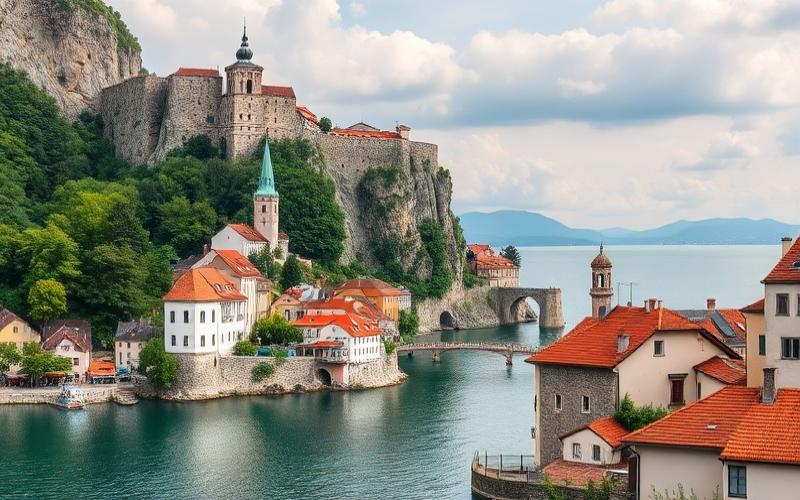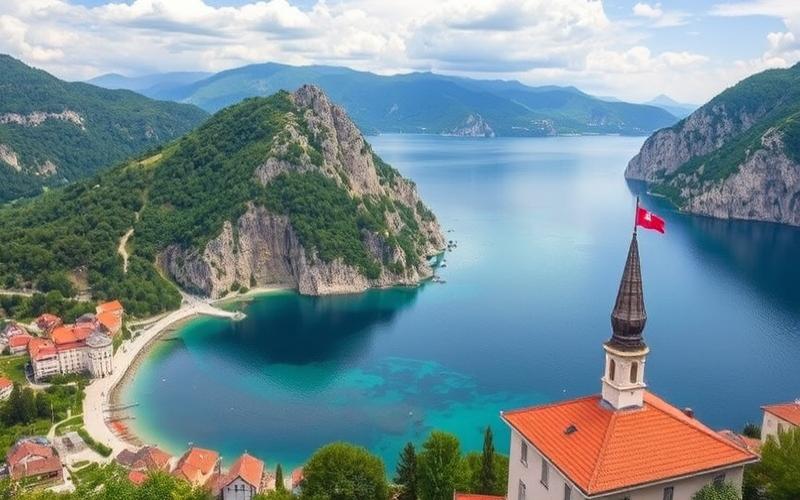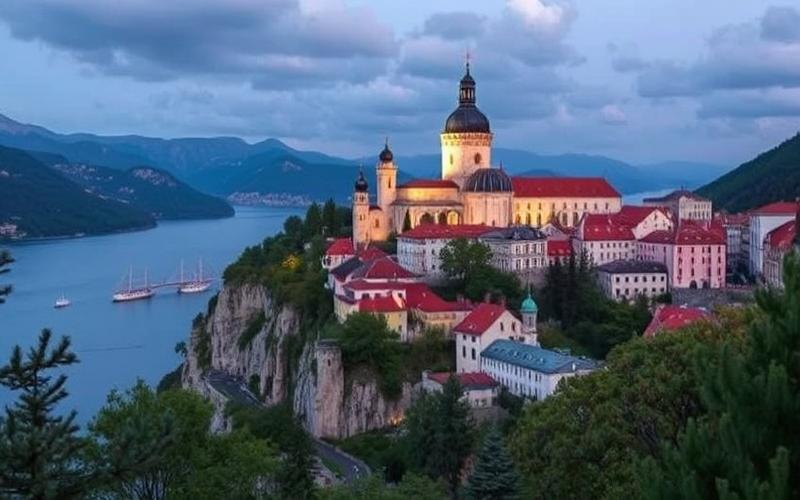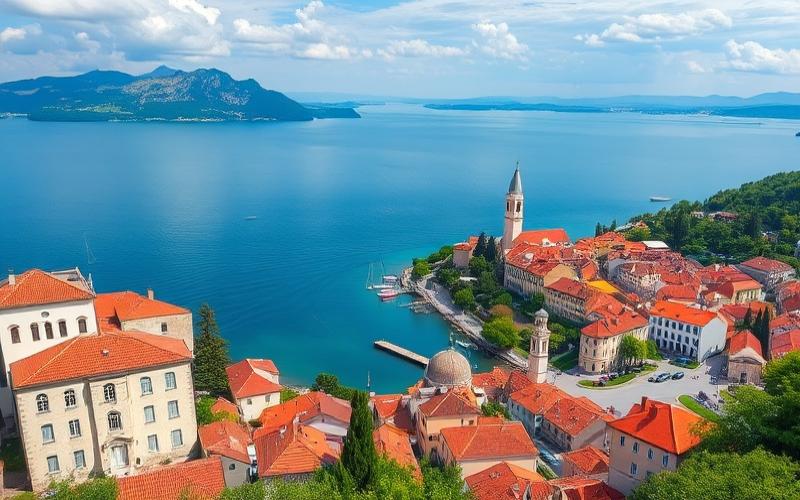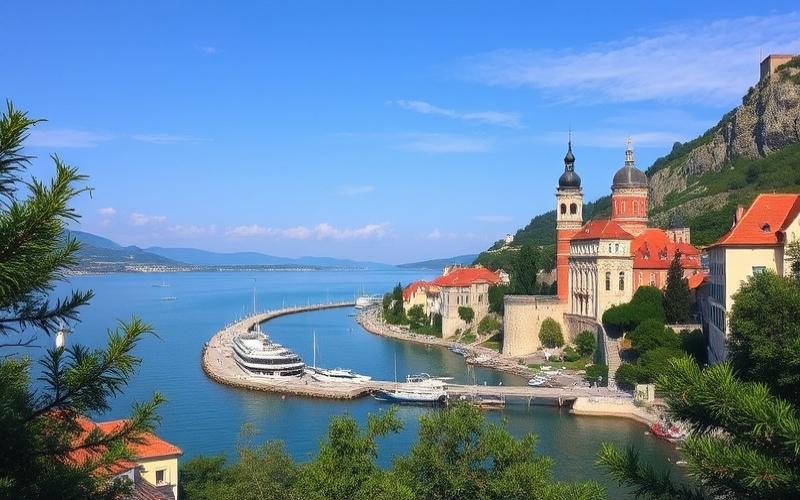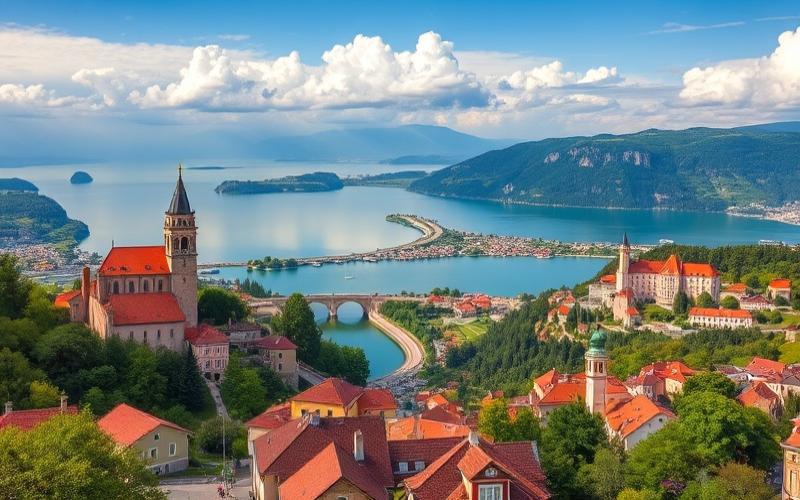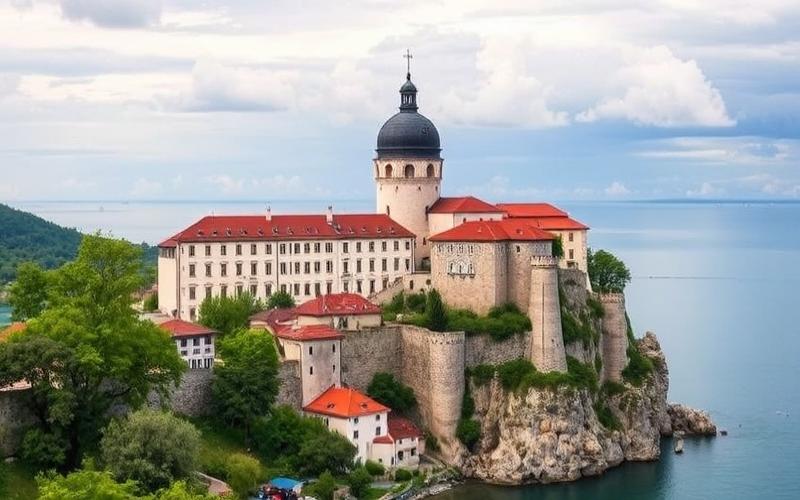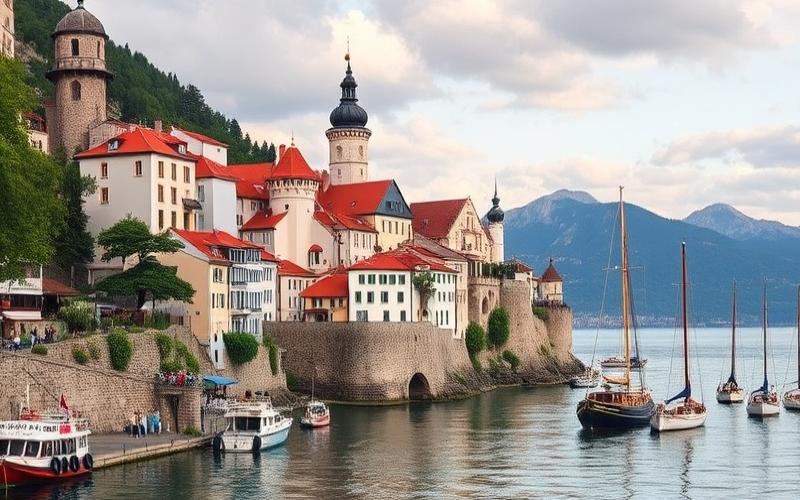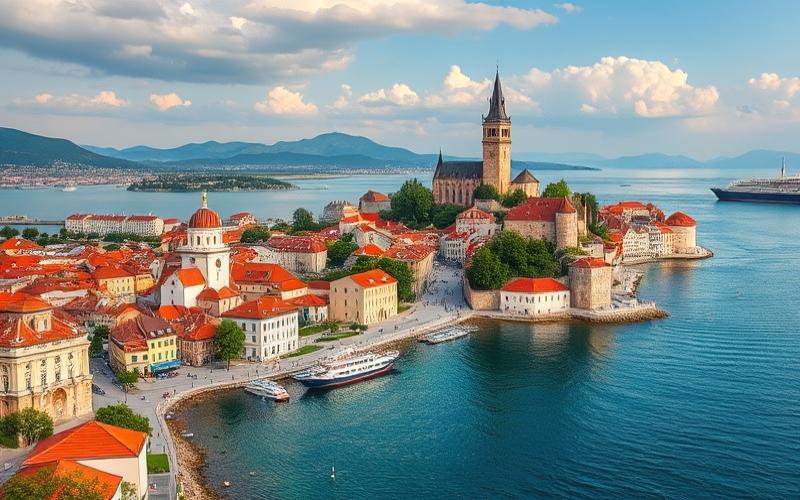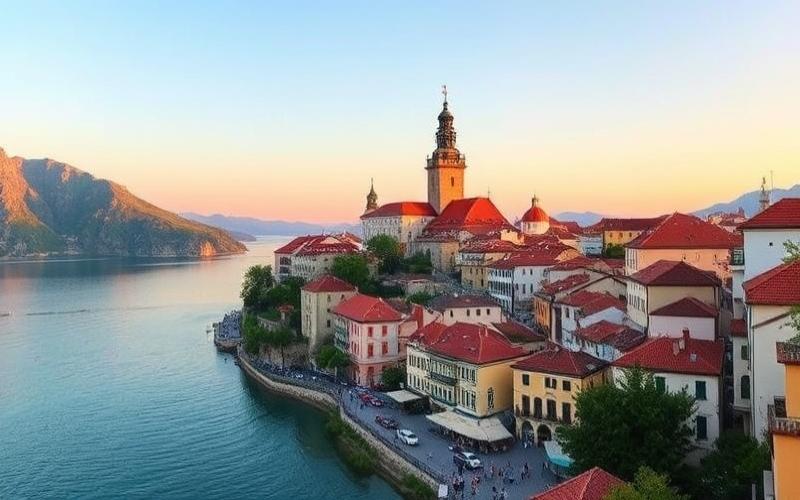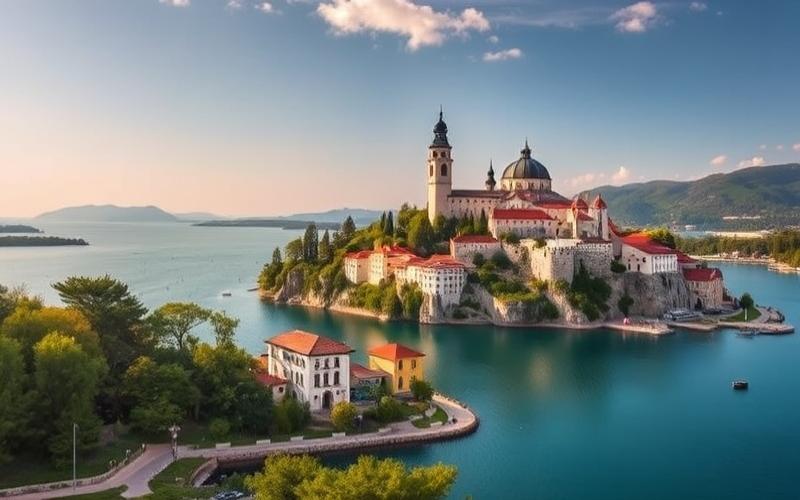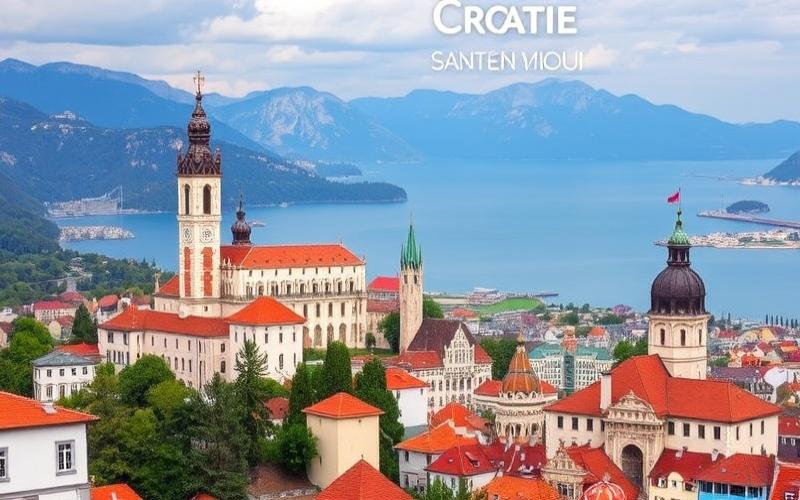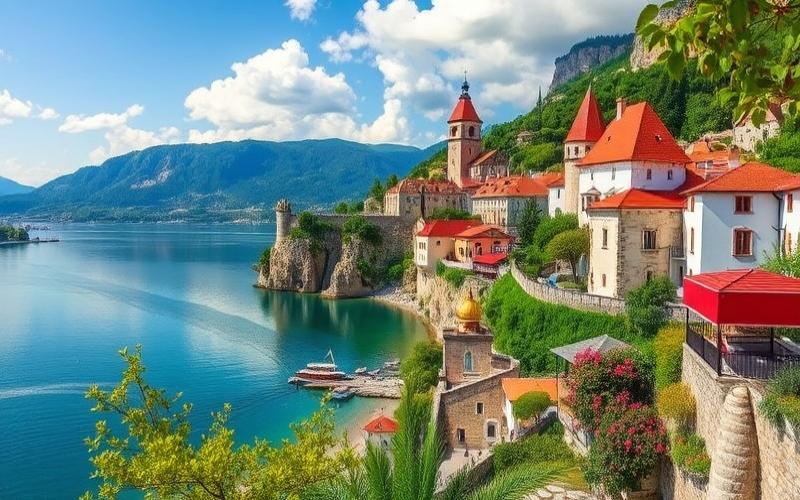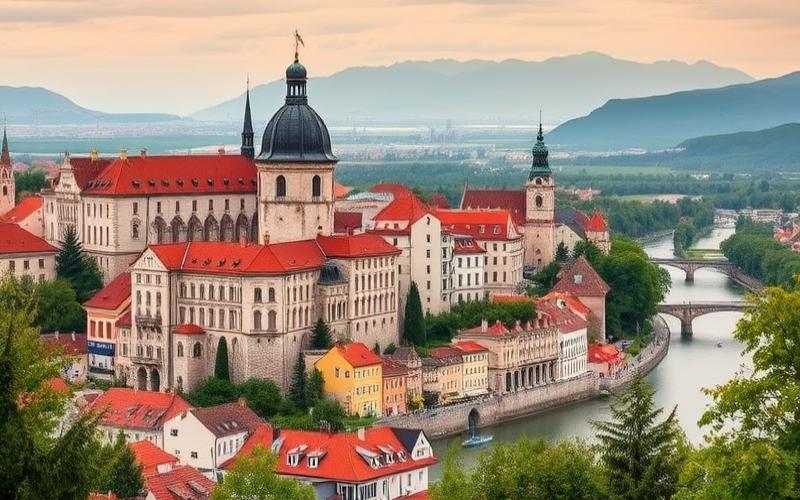
 Published on and written by Cyril Jarnias
Published on and written by Cyril Jarnias
Deciding to settle in Croatia, a country with stunning landscapes and rich history, may seem like an exciting project, but often runs into the complexity of administrative procedures.
Indeed, to live peacefully in this Adriatic gem, it is essential to master unavoidable steps such as obtaining a residence permit, registering with local authorities, and understanding financial and tax obligations.
The challenge lies in understanding legal subtleties and navigating through a sometimes confusing system, but with the right information and good preparation, it is possible to transition from dreamer to resident.
This article guides you through the essential steps and provides you with the necessary tools to make this process as smooth as possible.
Obtaining a Visa to Live in Croatia: Steps and Tips
Key Steps to Obtain a Visa to Live in Croatia
| Visa Type | Duration | Main Purpose | Main Specific Conditions |
|---|---|---|---|
| Short-stay visa (C) | ≤ 90 days | Tourism, business, family | Proof of funds, accommodation, insurance |
| Long-stay visa (D) | > 90 days | Work, studies, family reunification, digital nomad, retirement | Proof of purpose (contract, enrollment, etc.), funds, criminal record, insurance |
| Transit visa (A) | Transit | Airport transit | No entry into Croatian territory |
Documents Required for Visa Application
- Valid passport (minimum 3 months after planned departure date)
- Completed and signed application form
- 1 to 2 recent ID photos (35x45mm, light background)
- Proof of travel/health insurance covering the Schengen area
- Proof of sufficient financial resources (bank statements, income certificates, amount varies by visa type)
- Proof of accommodation (rental contract, hotel reservation, accommodation certificate)
- Return itinerary or ticket
- Proof of purpose of stay (employment contract, university enrollment, invitation letter, etc.)
- Recent criminal record extract for certain long-term visas
- Proof of application fee payment
- For minors: birth certificate, parental authorization
Application Process
- Identify the visa type suitable for your stay project.
- Prepare all required documents, strictly adhering to formats and requirements.
- Schedule an appointment with the competent Croatian embassy or consulate, or via a visa application center (VFS Global in some countries).
- Submit the application in person (mandatory), including biometric data collection if necessary.
- Pay the application fees (e.g., €93 for a long-stay D visa).
- Track the application processing.
Standard Processing Times
Approximately 15 business days for most visas.
Up to 45 days for complex or incomplete applications.
It is recommended to submit the application at least 2 to 3 months before the planned departure date.
Tips to Optimize Chances of Acceptance
- Check the validity of your passport and supporting documents.
- Provide complete, legible, and translated documents if necessary.
- Demonstrate sufficient financial resources (e.g., for digital nomads, minimum €3,295/month).
- Subscribe to health insurance that meets requirements.
- Provide clear and stable proof of accommodation.
- Ensure no problematic criminal history.
- Strictly adhere to photo formats and submission deadlines.
Competent Authorities and Recommendations
- Croatian embassies and consulates in your country of residence
- VFS Global centers for application submission in some countries
- Croatian Ministry of Foreign Affairs (for tracking and official information)
- Local police station upon arrival for residence registration (within 30 days of arrival with a D visa)
Tips to Avoid Delays or Complications
- Anticipate document preparation and appointment scheduling.
- Keep copies of all submitted documents.
- Stay informed about any regulatory updates.
- Verify the exact address of the competent center (some countries do not have a Croatian embassy, requiring contact with a regional consulate).
- In case of doubt or special situation, consult an immigration lawyer or official assistance services.
Good to Know:
To obtain a visa to live in Croatia, prepare a complete application including passport, application form, proof of financial resources and accommodation, ensuring you schedule an appointment in advance with the Croatian embassy or consulate to minimize delays which can take up to 30 days; a well-prepared and well-argued application increases your chances of acceptance.
Finding Adequate Housing in Croatia
Finding Adequate Housing in Croatia
Types of Available Housing
- Apartments: Very common in all major cities, ideal for short or long stays. Available downtown or in residential neighborhoods.
- Houses: Often located in suburbs or quieter areas, perfect for families or groups. On the coast and islands, many traditional fishermen’s houses are offered for seasonal rental.
- Rooms in private homes (“sobe”): Economical and authentic solution, allowing discovery of local culture. Available everywhere, particularly in tourist areas.
- Others: Hotels, hostels, unique accommodations (lighthouse, farm, etc.).
| Housing Type | Typical Location | Target Audience |
|---|---|---|
| Apartment | Downtown, neighborhoods | Couples, families, expats |
| Single-family house | Suburbs, coastline | Families, groups |
| Room in private home (sobe) | Everywhere, especially tourist areas | Students, solo travelers |
| Villa or vacation home | Coast, islands | Tourists, long-term expats |
Location in Major Cities
- Zagreb: Offers variety of modern apartments downtown, spacious houses in suburbs, student neighborhoods, many studios.
- Split: Apartments in the old town, houses and villas on the coast, abundant seasonal offers in summer.
- Dubrovnik: High prices, especially within city walls. Apartments and rooms in private homes highly sought after, vacation houses in suburbs or on the coast.
Housing Search Methods
- Online platforms: Airbnb, Booking, Cozycozy, Casamundo, Properstar for long-term or seasonal rental.
- Local real estate agencies: Present in all major cities, personalized assistance, agency fees to be expected.
- Social media groups: Facebook (expat or rental groups), specialized forums.
- Word of mouth: Widely used, especially for “sobe” or last-minute rentals.
Average Real Estate Market Prices (2025)
| City | Apartment (€/month) | House (€/month) | Room in Private Home (€/night) |
|---|---|---|---|
| Zagreb | 600 – 1,200 | 1,200 – 2,500 | 25 – 50 |
| Split | 800 – 1,500 | 1,500 – 3,000 | 35 – 70 |
| Dubrovnik | 1,000 – 2,500 | 2,000 – 5,000 | 40 – 90 |
Prices vary by season, exact location, size and condition of property. Rentals are more expensive by the sea and during high season.
Tips for Negotiation and Understanding Contracts
- Read contract carefully: Check duration, rent amount, included utilities, termination conditions.
- Negotiation possible: Especially off-season or for long-term rental. Ask for discounts for multi-month commitments.
- Security deposit: Usually equivalent to one month’s rent. Request a receipt.
- Inventory: Make written and photographic inventory upon entry and exit.
- Contract language: Often in Croatian; request translation or seek assistance if needed.
Documents Required for Rental
- Valid ID (passport or identity card).
- Proof of income or employment contract, sometimes required for long-term rental.
- Residence permit or proof of residence, depending on rental duration and expat status.
- Tax identification number (OIB): Mandatory for signing long-term contract.
Administrative Particularities for Expats
- Registration with police within 3 days of arrival (landlord may handle for short stays).
- Obtaining OIB (identification number) to request from Croatian tax administration.
- Opening local bank account recommended for rent payment.
- Home insurance sometimes required by landlord.
Good to Know:
In Zagreb, the average price for an apartment is about €800 per month, expats often need to provide proof of income and employment contract; using platforms like Njuškalo and local agency intervention can facilitate the search.
Renewing Your Residence Permit: Tips for Staying Stress-Free
Renewing a residence permit in Croatia involves following a series of precise steps, preparing specific documents, respecting deadlines, and paying administrative fees.
Steps to Follow for Renewal:
- Gather required documents.
- Submit application online (e-Građani portal) or in person at local police station.
- Pay renewal fees.
- Wait for official decision and receive new permit.
Documents to Provide:
- Valid passport or identity card.
- Proof of address (rental contract or accommodation certificate).
- Proof of sufficient financial resources (bank statement, employment contract).
- Valid health insurance covering entire requested period.
- Clean criminal record certificate (often required during renewal).
- Previous residence permit (to be renewed).
- Recent ID photo (if necessary).
Deadlines to Respect:
Submit application at least two months before expiration of current permit to avoid any interruption of stay.
Standard processing typically takes 7 to 10 business days, but can extend to several weeks during peak periods.
Associated Fees:
| Renewal Type | Estimated Fees |
|---|---|
| Temporary residence permit | 30-50 € |
| Permanent resident permit | 70-100 € |
| Expedited procedure (express) | Up to 100 € |
Additional fees may apply for new electronic card issuance or urgent request.
Tips to Avoid Common Mistakes:
- Carefully check required document list on official website before submitting application.
- Prepare copies of all documents and keep originals.
- Anticipate processing times by submitting application well before expiration date.
- Use tracking number provided upon submission to monitor application progress.
- Budget for unexpected fees.
Useful Resources and Contacts:
- Official portal of Croatian Ministry of Interior: e-Građani.
- Local police station (Ministarstvo unutarnjih poslova – MUP).
- Croatian Health Insurance Institute for insurance certificate.
- Croatian embassy or consulate in your country of residence.
- Lawyers or consultants specialized in immigration for personalized assistance.
Tips for Managing Administrative Stress:
- Keep paper and digital copies of all submitted documents.
- Note each completed step in a notebook or digital file.
- Prepare a checklist to avoid forgetting anything.
- Schedule appointment as early as possible to avoid waiting lines.
- Consult expats or specialized forums for experience feedback.
- Plan backup solutions (temporary accommodation, visa extension) in case of delay.
Good to Know:
Check the exact list of required documents for renewing your residence permit in Croatia on the Ministry of Interior website and keep copies of all submitted documents to avoid errors. Plan ahead by respecting submission deadlines and note contact details of local administration offices for any questions.
Renewal Checklist:
- Valid passport or identity card
- Proof of address
- Proof of financial resources
- Health insurance
- Criminal record
- Previous residence permit
- ID photo
- Copies of all documents
- Application tracking number
- List of useful contacts
By following these steps and tips, renewing your residence permit in Croatia proceeds more smoothly and limits risks of complications.
Understanding Laws and Procedures for Foreigners in Croatia
Fundamental Legislative Framework for Immigration in Croatia
Croatia governs foreigner immigration primarily through the Aliens Act, which underwent substantial amendments effective March 15, 2025. This law establishes conditions for entry, stay, and work for third-country nationals, while regulating rights and obligations of employers and foreign workers.
The 2025 amendments reflect a dual strategy: on one hand, attracting skilled workers and digital professionals, and on the other, reducing visa system abuses by strengthening controls and documentation requirements.
Types of Available Visas and Permits
Croatia offers several visa and permit categories adapted to different situations:
Work and Residence Permits for Foreign Workers
Third-country nationals can obtain work and residence permits valid for up to three years, depending on employment contract duration. For seasonal work, permits extend up to nine months. These documents are now issued as biometric documents.
Enhanced European Blue Card
Croatia strengthened its European Blue Card program for highly qualified non-EU workers. This card is now valid for four years and now extends to IT professionals without formal degrees possessing at least three years of experience. The required minimum salary must reach 1.5 times the national average salary.
Permits for Returning Croatian Emigrants
Croatia encourages return of its emigrated citizens by granting them a two-year residence permit. After three years, these emigrants acquire right to permanent residence and employment rights without specialized work or residence permits.
Steps for Obtaining Residence Permits
The process for obtaining temporary or permanent residence permits follows a structured administrative procedure:
Phase 1: Preparation and Documentation
The Croatian employer must first undertake a preliminary request for recognition of need for foreign workforce. The employer must demonstrate:
- Full-time employment of a Croatian citizen for at least 12 months
- Active business operations
- Compliance with established revenue thresholds
- No history of labor law violations
Phase 2: Skills Verification
For professions on the “shortage occupations” list, the foreign worker must prove competence for the desired position.
Phase 3: Financial Guarantee
Employers must provide a financial guarantee (promissory notes) to the State for each third-country national worker. This measure strengthens employer responsibility.
Phase 4: Thorough Checks
Since March 2025, Croatian authorities conduct more detailed background checks, resulting in extended waiting periods and stricter documentation requests.
Phase 5: Permit Issuance
Once approved, the permit is issued as a biometric document valid for up to three years for regular employment.
Eligibility Criteria
Criteria vary by type of permit requested:
| Criterion | Regular Workers | IT Professionals/Blue Card | Croatian Emigrants |
|---|---|---|---|
| Validity Duration | Up to 3 years | 4 years | 2 years (initial) |
| Minimum Salary | Equal to Croatian citizens | 1.5× national average salary | No restriction |
| Experience Required | By sector | 3+ years for IT without degree | Previous residence in Croatia |
| Formal Degree | By position | Not required for IT | Not applicable |
| Background Check | Yes, detailed | Yes | Yes |
Registration with Local Authorities
Once the residence permit is obtained, the foreign worker must register with competent local authorities. This registration is mandatory and constitutes a prerequisite for exercising social rights and accessing public services in Croatia.
Registration must be completed within a specific timeframe following arrival in Croatia, generally within eight days of settlement. The worker must provide:
- The residence and work permit
- Proof of address
- Identity verification
- Employment contract
Administrative Timelines
Processing times for work and residence permit applications have significantly increased since the March 2025 amendments. Croatian authorities now process applications according to an extended schedule, with prolonged waiting periods due to thorough checks. It is recommended to allow 4 to 8 weeks for complete application processing, although this timeframe may be exceeded depending on application complexity and administrative holiday periods.
Legal Work Framework for Expats
Rights and Obligations of Foreign Workers
Foreign workers in Croatia enjoy the same fundamental rights as Croatian citizens in the work context, including:
- A minimum wage equal to that of Croatian workers in comparable positions
- Access to unemployment benefits in case of job loss
- A 60-day unemployment period after employment contract expiration to seek new employment and register with public employment service
- Access to Croatian language training, which becomes a condition for obtaining five-year long-term residence
Housing and Working Conditions
Croatian legislation also regulates adequacy of housing provided by employers to foreign workers, ensuring living conditions meet minimum standards.
Sectors with High Foreign Workforce Demand
Although search results do not detail all sectors exhaustively, shortage occupations are prioritized. The information technology and digital technology sector experiences particularly strong demand, as evidenced by the extension of the European Blue Card to IT professionals. Tourism, construction, and service sectors also traditionally seek foreign workforce.
Integration and Support Measures
Croatian Language Learning
The Croatian state commits to ensuring foreign workers acquire sufficient proficiency in Croatian language, this condition becoming mandatory for obtaining five-year long-term residence.
Measures for Emigrant Return
To encourage return of emigrated Croatian citizens, the government implemented:
- Income tax exemption for five years for displaced Croatian citizens returning to Croatia, provided they resided continuously abroad for at least two years
- A program connecting Croatian emigrants with employers, implemented in cooperation with the Ministry of Labor, Croatian Chamber of Commerce, Croatian Employers’ Association, and Public Employment Service
Official Resources and Support
For comprehensive information and support in immigration procedures:
Competent Authorities
- Croatian Employment Service (CES): Manages work permit applications and provides employment advice
- Ministry of Interior: Responsible for residence and registration matters
- Ministry of Demography and Immigration: Coordinates immigration policies and integration measures
Chambers of Commerce and Professional Associations
- Croatian Chamber of Commerce: Provides advice to employers on recruiting foreign workers
- Croatian Employers’ Association: Offers support on legal obligations regarding employment of foreign workers
Administrative Support
Croatian municipalities and cities have local registration services where foreign workers can obtain assistance for administrative registration procedures with local authorities.
Recent Developments and Impact
It is important to note that Croatia recorded a 70% decrease in work permit approvals following the March 2025 amendments, reflecting significant strengthening of controls. This evolution underscores the importance of carefully preparing applications and strictly respecting all eligibility criteria established by Croatian authorities.
Good to Know:
To obtain a residence permit in Croatia, foreigners generally must first obtain temporary residence authorization which can be converted to permanent permit under certain conditions, such as five years of continuous residence; it is crucial to register with local authorities within eight days of your arrival, with IT and tourism sectors having high demand for foreign workers.
Disclaimer: The information provided on this website is for informational purposes only and does not constitute financial, legal, or professional advice. We encourage you to consult qualified experts before making any investment, real estate, or expatriation decisions. Although we strive to maintain up-to-date and accurate information, we do not guarantee the completeness, accuracy, or timeliness of the proposed content. As investment and expatriation involve risks, we disclaim any liability for potential losses or damages arising from the use of this site. Your use of this site confirms your acceptance of these terms and your understanding of the associated risks.

